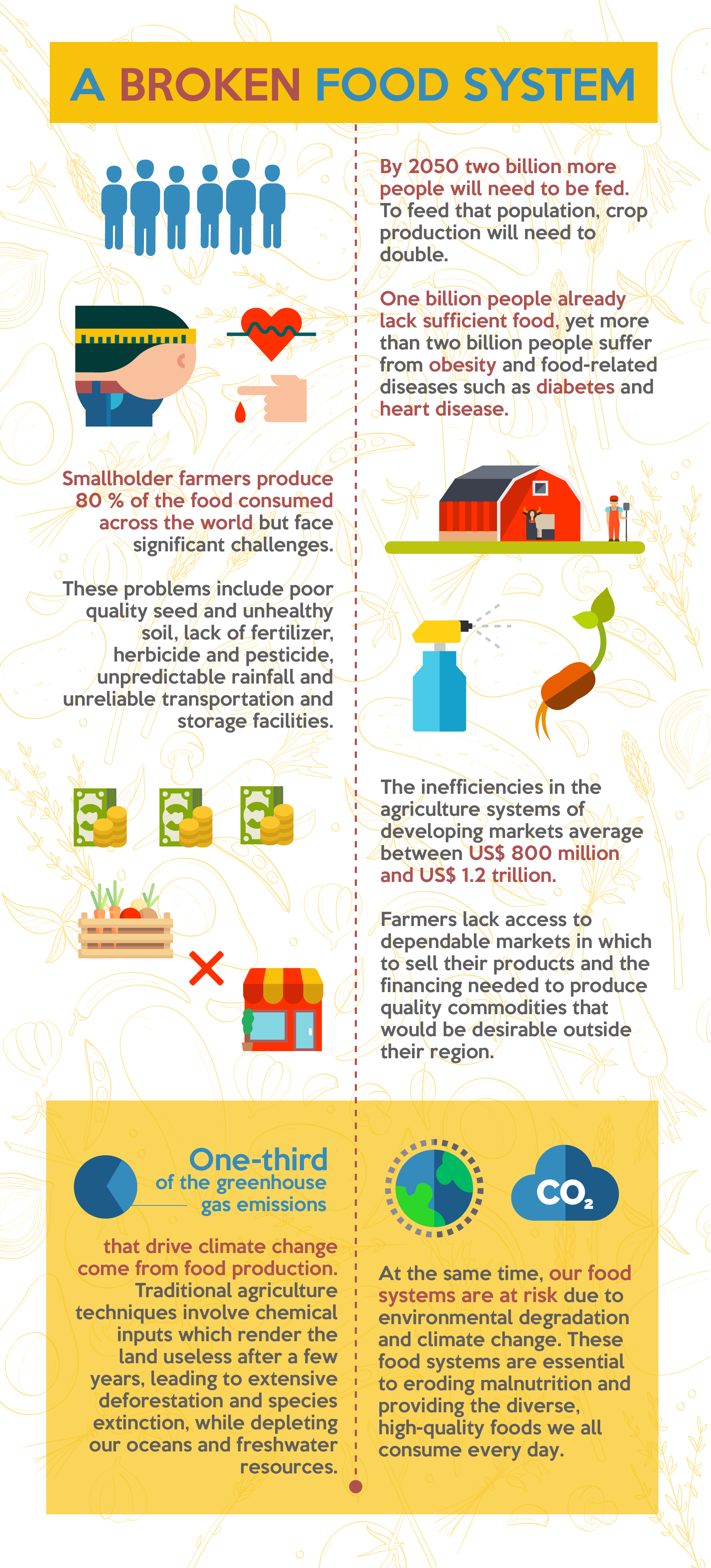In a recent report, the 130 national academies of science and medicine that compose the InterAcademy Partnership, have united to urge policy-makers to take immediate action on climate change, to improve the sustainability of global food systems and end hunger. The past year has revealed just how vulnerable food production systems are to extreme weather and other results of man-made climate change, and how this is threatening to reverse efforts that have been undertaken to end hunger. According to the State of Food Security and Nutrition in the World, the number of undernourished people has risen for a third consecutive year, from around 804 million in 2016 to nearly 821 million in 2017 – around one in nine people on the planet. While climate change is exacerbating food and nutrition insecurity and inequalities, our food production system is under tremendous pressure to satisfy the global demand for produce and feed an ever-growing population expected to reach 8 billion by the year 2024.
However, agricultural production cannot expand infinitely. It is imperative to avoid further depletion of ecosystem services and biodiversity. According to the World Bank, approximately 11% of the Earth’s land is already used for arable purposes, and a third of the planet’s soil is acutely degraded due to agriculture. Conventional agriculture practices and consumer choices are major factors driving disastrous climate change: Agriculture, forestry and land-use change alone – not including food transport and other energy-intensive processes – contribute around 20-25% to global annual emissions. Current food systems are not only putting the environment at stake, but also health, nutrition, trade, jobs, and the economy. Therefore, it is more important than ever to implement sustainable agriculture models that mitigate climate change and tackle the global demand for food.

What steps should be taken to improve the global food system?
- Climate-smart food systems: Agriculture and food production systems need to develop sustainable agriculture strategies using natural inputs that increase productivity, limit greenhouse gas emission and work with the environment and nurture it, rather than exploit surrounding ecosystems.
- Incentives for consumers to change their diets: Healthy and natural foods should be promoted in schools and communities, and consumers should be informed about the environmental implications of food choices.
- Education about our food system and its impact on climate change: Farmers and rural communities need to be able to understand how conventional farming techniques and synthetic crop care solutions impact the environment in order to encourage the use of sustainable farming techniques.
At Primal we are trailblazers in the field of sustainable agriculture, operating the largest commercial neem plantation in the world through the sole use of organic inputs. The neem tree, named the “Tree of the 21st Century” by the United Nations, can provide a sustainable solution for the world’s food production problem. Azadirachtin, the neem tree’s main active compound, is a natural and 100% safe pesticide, while neem cake, the byproduct from the production of neem oil, serves as a natural fertilizer that nurtures the soil and prevents soil degradation.
Offering an accessible, affordable and sustainable option for smallholder farmers and large-scale farms across the world, neem has the power to help propel a new age in food production, which will not only help increase yields but will also heavily reduce the global impact of agricultural practices on the environment. Our neem plantation is living proof that yields can be increased while cutting costs and protecting the environment. Combined with the latest technologies, like drone surveillance and underground sensors, we are able to use real-time data in order to determine the precise amount of agricultural inputs needed, helping us preserve resources.
Through our community work and our Sustainable Future Initiative, we contribute to educating the local community on sustainable agriculture practices and donate all the organically grown foods from our mandala project to local schools.
In the future, neem and climate-smart agriculture will play an integral role in helping to fix a failing food system and satisfying the global demand for food. As the largest neem producer in the world, Primal is poised to become a major player in the neem market, while helping address the climate impacts of agriculture.